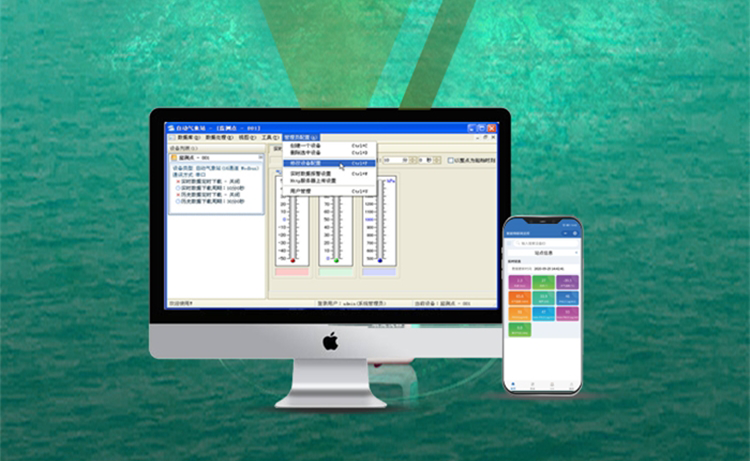

— Products —
 Consumer hotline +8618073152920
Consumer hotline +8618073152920 WhatsApp:+8615367865107
Address:Room 102, District D, Houhu Industrial Park, Yuelu District, Changsha City, Hunan Province, China
All products
A soil pH moisture meter is a handheld instrument used for measuring two important properties of soil: pH level and moisture content. This tool is essential for gardeners, farmers, and anyone else involved in soil management and plant growth, as it provides valuable information for optimizing plant health and soil fertility.
Tel/WhatsApp:+8615367865107
Email:Arvin@niubol.com +Nearly 100 partner companies in more than 68 countries. We are committed to providing high-quality, practical products to meet your needs and help you solve problems. Our products comply with international standards and are certified with ISO, CE and RoHS.Product Details












A soil pH moisture meter is a handheld instrument used for measuring two important properties of soil: pH level and moisture content.This tool is essential for gardeners, farmers, and anyone else involved in soil management and plant growth, as it provides valuable information for optimizing plant health and soil fertility.
1.Soil pH Measurement: The pH level of soil is a measure of its acidity or alkalinity.It's important because it affects the availability of nutrients to plants.Most plants thrive in a slightly acidic to neutral pH range (around 6.0 to 7.0).A soil pH moisture meter has a probe that is inserted into the soil to measure the pH level.This reading indicates whether the soil is too acidic, too alkaline, or within the optimal range for plant growth. The pH scale ranges from 0 to 14, with 7 being neutral.Values below 7 indicate acidity, while values above 7 indicate alkalinity.
2.Moisture Content Measurement: The moisture content of soil is crucial because it affects the water-holding capacity and the ability of plants to extract nutrients from the soil.
Time Domain Reflectometry (TDR):
- TDR sends an electromagnetic pulse through a waveguide made of soil. By measuring the time it takes for the pulse to travel and reflected back, the moisture content can be determined.
Frequency Domain Reflectometry (FDR):
- Similar to TDR, FDR measures the water content by sending a low-frequency signal through a soil sample and analyzing the reflected signal. readily than dry soil.
- Customized Fertilization: Knowing the soil pH and moisture level allows for tailored fertilization and watering strategies.
- Preventing Diseases: Overly acidic or alkaline soil can lead to diseases and nutritional deficiencies in plants.Monitoring soil pH can help prevent these issues.
- Enhancing Crop Quality: Proper soil conditions lead to healthier crops with better yields and quality.
- Sustainable Farming: By understanding soil health, farmers can reduce the need for chemical inputs and promote sustainable agricultural practices.
- Ensure the probe is clean and dry.
- Insert the probe into the soil to the specified depth (usually a few inches).
- Wait for the device to give a reading, which might require a few moments.
- Record the pH and moisture level.
- Take multiple readings in different areas of the garden or field to get a comprehensive understanding of soil conditions.
5.Maintenance: After use, the probe should be cleaned to remove any soil residue that could affect future readings.The device itself should be stored in a safe place, away from moisture and extreme temperatures.
- Gardening and Farming: Knowing the soil pH and moisture level helps gardeners and farmers make informed decisions about plant selection, watering schedules, and soil amendments.Some plants thrive in acidic soils, while others prefer alkaline conditions.Similarly, understanding moisture levels can prevent overwatering or underwatering, both of which can harm plant health.
- Landscaping: For landscaping projects, these meters can help in selecting the right plants for the soil conditions and ensuring that newly planted trees and shrubs receive the correct amount of water.
- Research and Environmental Monitoring: In research settings, these meters provide valuable data on soil conditions, aiding in studies related to ecology, agriculture, and climate change.
- Calibration and Cleaning: To ensure accuracy, it's important to regularly calibrate the pH function according to the manufacturer's instructions and clean the probes after each use to remove any soil residue that could affect future readings.
- Soil Contact: For reliable measurements, both probes must be in good contact with the soil.Removing stones and breaking up large clumps can improve accuracy.
- Depth of Measurement: Different plants have varying root depths, and soil conditions can change with depth.Taking measurements at different depths can provide a more comprehensive understanding of the soil's condition.
- Interference: The presence of salts, minerals, or fertilizers in the soil can sometimes interfere with accurate readings, particularly for pH. It's beneficial to be aware of these potential issues and consider laboratory tests for critical applications.
In conclusion, a soil pH moisture meter is an invaluable tool for anyone involved in growing plants or managing soil.By providing essential information about the soil's pH and moisture levels, these meters help optimize growing conditions, leading to healthier plan.
Sensors & Weather Stations Catalog
Agriculture Sensors and Weather Stations Catalog-NiuBoL.pdf
Weather Stations Catalog-NiuBoL.pdf
Related recommendations
 Multi-Depth Soil Sensor RS485
Multi-Depth Soil Sensor RS485 TDR Soil Moisture Sensor
TDR Soil Moisture Sensor Pyranometer Solar Radiation Sensors
Pyranometer Solar Radiation Sensors Soil ph sensor
Soil ph sensor Tipping Bucket Rain Gauge
Tipping Bucket Rain Gauge Air Temperature and Humidity Sensor
Air Temperature and Humidity Sensor
Screenshot, WhatsApp to identify the QR code
WhatsApp number:+8615367865107
(Click on WhatsApp to copy and add friends)
